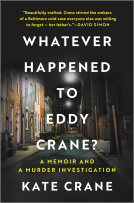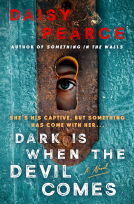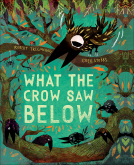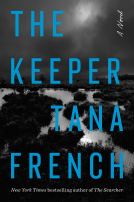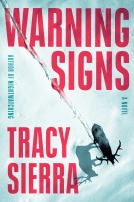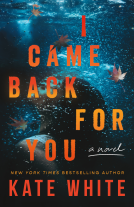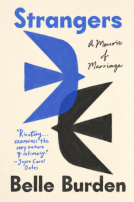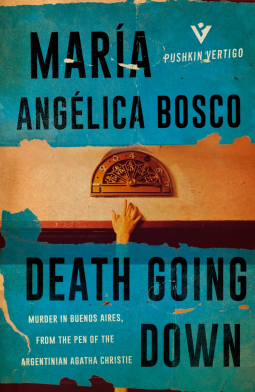
Death Going Down
by María Angélica Bosco
This title was previously available on NetGalley and is now archived.
Send NetGalley books directly to your Kindle or Kindle app
1
To read on a Kindle or Kindle app, please add kindle@netgalley.com as an approved email address to receive files in your Amazon account. Click here for step-by-step instructions.
2
Also find your Kindle email address within your Amazon account, and enter it here.
Pub Date Feb 21 2017 | Archive Date Nov 10 2016
Pushkin Press | Pushkin Vertigo
Description
In the early hours of the morning, a woman is found in the elevator of a plush apartment block on Santa Fe Road, Buenos Aires. She's young, gorgeous—and dead.
It looks like suicide, and yet none of the building’s residents can be trusted; the man who discovered her is a womanizing drunk; her husband is behaving strangely; and upstairs, a photographer and his sister appear to be hiding something sinister. When Inspector Ericourt and his colleague Blasi are set on the trail of some missing photographs, a disturbing secret past begins to unravel.
Set during the aftermath of World War II, when many immigrants left Europe for Argentina—some of them with dark pasts to hide—Death Going Down contains all the ingredients of a classic detective novel.
Advance Praise
"One of the best Argentinean detective novels of the twentieth century" MDZ Magazine
Available Editions
| EDITION | Other Format |
| ISBN | 9781782272236 |
| PRICE | $13.95 (USD) |
| PAGES | 160 |
Average rating from 25 members
Featured Reviews
 Elaine T, Reviewer
Elaine T, Reviewer
I would like to thank Netgalley and Pushkin Vertigo for an advance copy of Death Going Down, the fairly short investigation into the death of Frida Eidinger, found dead in an apartment block lift in Buenos Aires.
A female body is discovered in an apartment block's lift. She is not a resident and only one resident admits to knowing her although he denies she was visiting him that evening. As Inspector Ericourt and his secretary, Blazi start to enquire into Frida's life they uncover many secrets and still have no idea if it was suicide or murder but another body steers them towards murder.
Death Going Down is an old fashioned murder mystery with limited suspects and an ingenious method of killing. As befits the era, the novel was first published in 1955, the emphasis is all on the plot with little character development. I don't think this is a bad thing as it makes for interesting reading.
Ms Bosco, a new author to me, is apparently regarded as the Argentinian Agatha Christie and quite rightly so as this novel, her debut, had me baffled. I picked the wrong perpetrator and had no idea of method or motive. I stopped trying to guess when my brain started hurting.
If you want a short, engrossing puzzle Death Going Down fits the bill nicely and I have no hesitation in recommending it as a good read.
A classic whodunit written in Argentina in 1954 that reads like a time capsule. Not just because all the characters smoke like chimneys, but also with regards to gender politics. Some of the statements that the characters (male and female) make about women are shockingly old-fashioned (I can't believe this was written by a woman). After you get over this, the story is delightfully old-school, with a shout out to the Gaston Leroux classic The Mystery of the Yellow Room. It is also eye-opening as to the story of Argentina. I guess all I know about this country is what I learned from the musical Evita (I know, I should be ashamed of myself) so it is shocking to see how the geographically far away World War II affected them so much. The effects of this debacle affect this story. The detectives are a little one-dimensional compared to the new generations of investigators that we are used to reading these days, but they are still likable (especially Biasi and his canine companion, Muck). I really enjoyed the final resolution, with the detectives reuniting all the suspects and making them confess. It is a short and easy novel, and fans of whodunits must read it.
 Reviewer 197670
Reviewer 197670
[book:Death Going Down|29496170] is a classic murder mystery, first published in Argentina in the 1950s.
A woman is found dead in the lift of a building in Buenos Aires. Suicide? Murder? What happened? Why did it happen? Who was involved?
I was really impressed by this novel. It is only 160 pages long and yet, in it one encounters lovely prose, strong sense of place, good characterisation and an intricate plot.
Highly recommended!
(Many thanks to NetGalley and the publisher for the ARC.)
 Richard L, Reviewer
Richard L, Reviewer
María Angélica Bosco died in 2006; Death Going Down was her first novel, and won the Emecé Novel Award in 1954. It is a shame that I have only just become aware of her work.
Was she the Queen of crime in Argentina at this time? Well maybe, there is murder/suicide with poison. A denouement and a final re-enactment where the detectives are looking for anyone to give themselves away as the truth alludes them or the evidence isn't conclusive.
For this type of detective fiction to work you need a closed location, a limited number of suspects with things to hide and an unwilliness to talk to the police.
Set just 10 years after the end of WWII a number of individuals have resettled in Argentina to escape the horrors of Europe and build a new life. Imagine if across the world you meet someone who knows your past; it secrets and yours lies.
Motives galore, but no-one appears to have both sufficient motive and opportunity.
The key message of this book appears to be dependence in its many forms and restrictions; not being able to move nor being prepared to allow others to change. But is really really enough to kill or was it really just a suicide?
It was really a great experience to read an old fashioned crime novel set in another country, oozing rich language and intelligently written.
Unlike some books developing at this time this book keeps it focus on the crime and the background of the participants. It isn't, nor perhaps could it be a sociopolitical novel as Argentina was a very different country to say Sweden in the mid-fifties. This doesn't distract from this reading experience as it is insightful in terms of policing and underscores the frailties of human nature where people are 'normal' but remain capable of murder.
I am loving the genre of crime noir fiction at the moment - and this is no exception.
This time the setting is in Buenos Aires - Pancho Francesco Soler discovers the body of a murdered woman in an elevator. All the residents of the building have something to hide - after WWII, many immigrants made their way to Argentina - and many had skeletons in the closet.
The story is punchy, and not short on suspects, motives, secrets, red herrings and death.
Who is the victim and why was she killed - all is revealed in the final chapter as the pieces of this puzzle fall into place.
Further reading: Frederic Dard, Augusto de Angelis, Caimh McDonnell, Bradley Spinelli.

